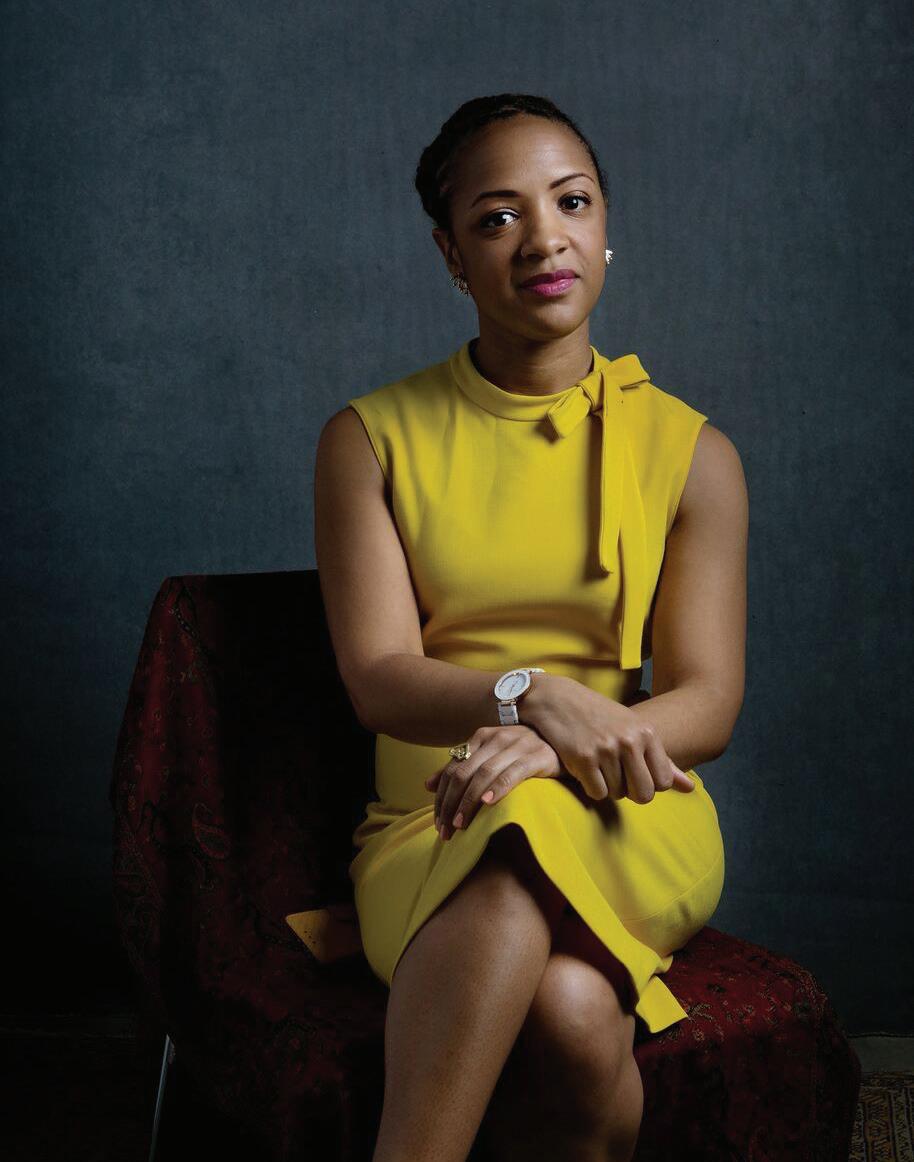
2 minute read
Director’s Notes
SCHOOL GIRLS; OR, THE AFRICAN MEAN GIRLS PLAY
DIRECTOR’S NOTES
BY CANDIS C. JONES
It is not every day that Black Women commune to craft a play by a Black woman. That calls for celebration, confetti, and applause. These rare and special moments are the joy of my career. Along with that, it is an honor to be in the fold of one of the most comedic, heart wrenching, widely produced plays of my generation. I am writing this note at the very beginning of our process, to share some intimate reflections on the themes of School Girls from our rehearsal room. When I saw this play in 2017, I was hemmed up in laughter in one moment and burst into tears in the next. I couldn’t pinpoint why exactly, but I felt the camaraderie, sisterhood, confusion, innocence, disappointment and pain that these girls were experiencing. Anyone who has grown up in the public or private school system can relate. That experience is even more layered for a dark skinned little Black girl anywhere from Ghana to our own backyard. I love that our playwright, Jocelyn Bioh, places us in her home in Ghana, but we are witnessing this play in America. Therein lies the intersecting conversation of colorism. We see Paulina desiring a more American or European look… straight hair and lighter skin. She believes it is her ticket to compete and market herself.
In our first week together the actors and I revisited Alice Walker’s essay “If the Present Looks Like the Past, What Does the Future Look Like?” in which she defines colorism and how it divides the Black community. Alice Walker wrote this essay in 1982 and it still anchors us in discourse and healing. I posed the essay title question to the cast to imagine possible futures or at the very least to create a balm of connection for the present.
Starnubia pinpointed the daunting truth that racism may never end thus this conversation always feels timely and present. Others highlighted the ways in which the beauty industry and the media have historically bamboozled Black women.
Jasmine Cheri Rush shared, “my hope is that the women who are always on the brunt end (we dark skinned women) — at least we can get the acknowledgement of it without the immediate dismissal…if colorism is all about the male gaze, if not by men, at least we can get the acknowledgement of our experience from women.”
In looking at the present and toward the future, I can say that perhaps since Alice Walker wrote the aforementioned essay in 1982, our conversation has expanded. Jocelyn Bioh nods to more possibilities for the future when the girls serenade us with the unforgettable mantra in “The Greatest Love of All.” We can seed the next generation and only hope for unity.






